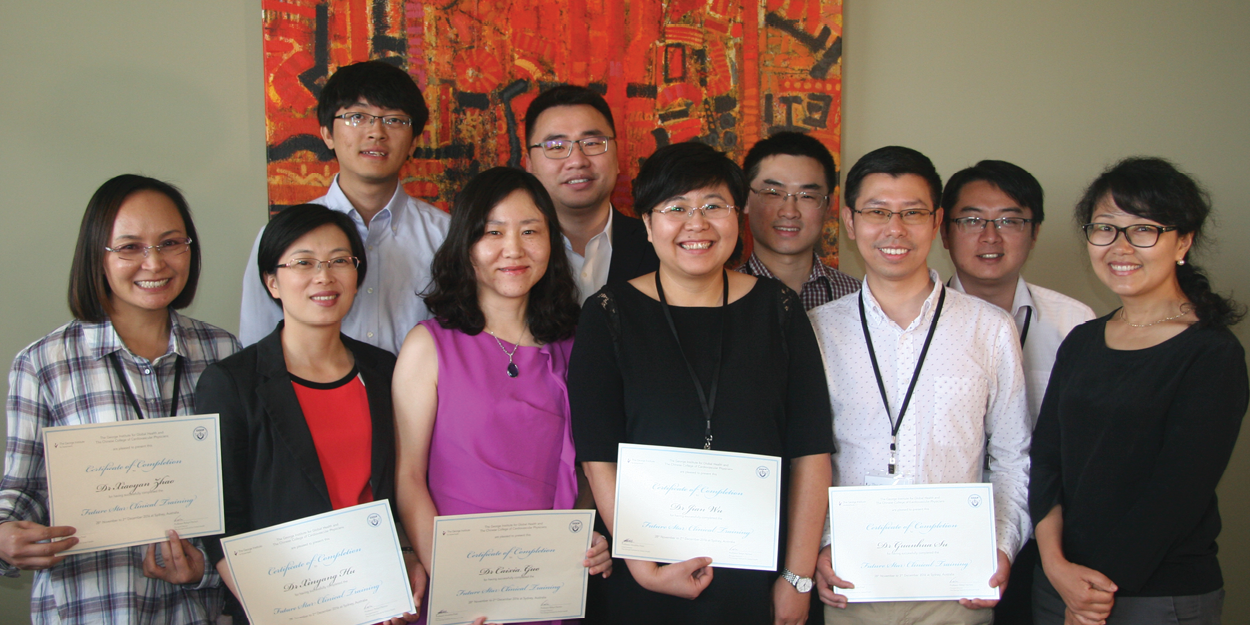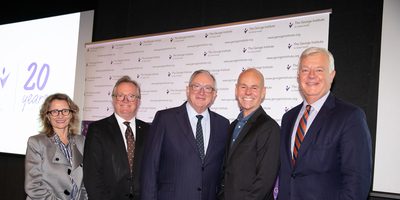
20 years of empowering researchers
Just as a lack of trained doctors can cost lives, a shortage of researchers can also mean opportunities to save them are lost. That’s why building an international research workforce is a top priority, says Peter Dolnik.
When Peter Dolnik, Director of Research Strategy and Services, arrived at The George Institute in 2007, it was an exciting time of new possibilities, with offices being launched in both China and India.
But a massive challenge quickly emerged.
“We not only needed well-trained health and medical researchers, but ones that could speak the local languages and display the necessary sensitivity and cultural skills to ensure success,” Peter says.
However, just as the health systems in these countries lacked the proper resources to tackle chronic disease, there were also not enough local researchers.
It therefore became clear that helping to build the local research workforce in countries such as China and India had to become a key part of the Institute’s operations.
Today, as part of a broad range of responsibilities, Peter oversees the Institute’s intensive research training program. Since it began in 2015, the program has trained over 250 researchers from around the world with the necessary skills to make a crucial difference to some of the world’s most disadvantaged regions.
“Our research training program is something I am really passionate about,” says Peter. “It is based on the belief that, in addition to research we conduct in low- and middle-income countries, we also have a moral obligation to contribute to training the next generation of researchers – to make sure that in 10 or 15 years from now there is sufficient capacity for them do really high-impact research independently.”In addition to the intensive training program, the Institute staff currently also supervise more than 70 students who come to Sydney to undertake their PhD at UNSW Sydney, or travel to the UK to study at another Institute affiliate, the University of Oxford. Others, already more advanced in their career, are supervised, mentored and further trained by the Institute’s senior researchers in one of the our centres to further hone their skills.
Students from as far afield as Bangladesh, China, Ethiopia, India and Nigeria are both trained and mentored across The George Institute offices in Australia, India, China and the UK. Short courses to absorb and learn more specialised research skills are also provided in various countries and contexts.
These early-career researchers could go on to make discoveries that help millions of people in their home countries. However, their research ability is not the only skill from which so many others will benefit: they also play a vital role in training local researchers when they return home.
“It is really exciting when a researcher spends months or years training with us and then returns to their country and becomes a leader in their field,” Peter says. “I really look forward to contributing to training future generations of the world’s high-impact researchers.”
Peter is optimistic about the future of the Institute and proud to be working with such a dynamic organisation.
“The Institute is at the forefront of efforts to translate research into policy and practice and I get to work with some of the best researchers in the world,” he says. “I believe we are one of the most influential global research organisations in our field.”
Celebrating 20 years: Peter’s top moments
- Establishing the Research Services Unit: “When I joined the Institute there was no Research Services Unit: no system, no database, no processes for submitting funding applications. Now I have five staff globally supporting the submission of more than 200 funding applications every year, coordinating internal academic reviews of all applications to ensure that only high-quality applications are submitted to funding bodies. I’m quite proud of that.”
- Establishing a new research centre: “I was responsible for establishing a health research centre in China in collaboration with a group of cardiovascular physicians that we had long-established collaborations with. A lot of our research has been done in China in the past but to actually play an active part in establishing a vehicle that further enhances our opportunities to contribute to improving health in the country, I feel very proud of that.”
- Working with the best of the best: “When you know that you lead a service group providing support to some of the most prominent experts and international leaders in their respective fields, it’s quite exciting.”


